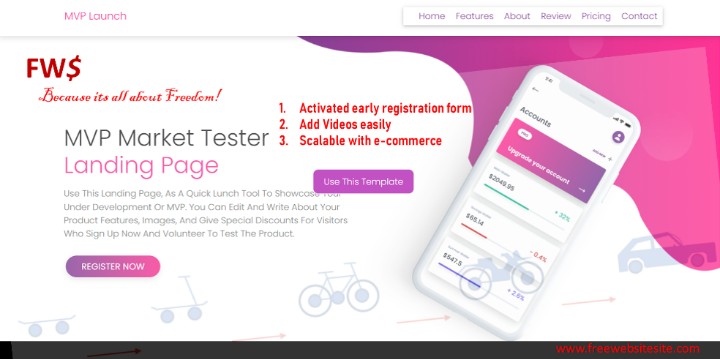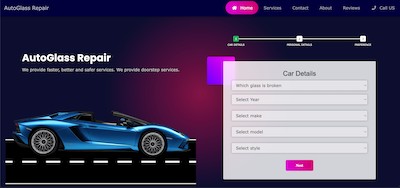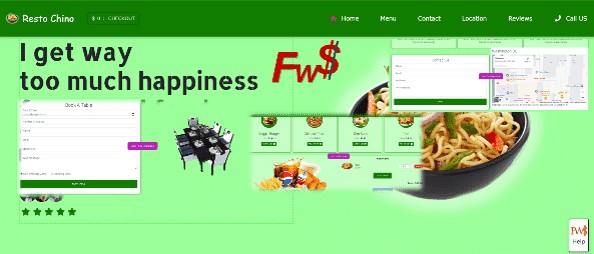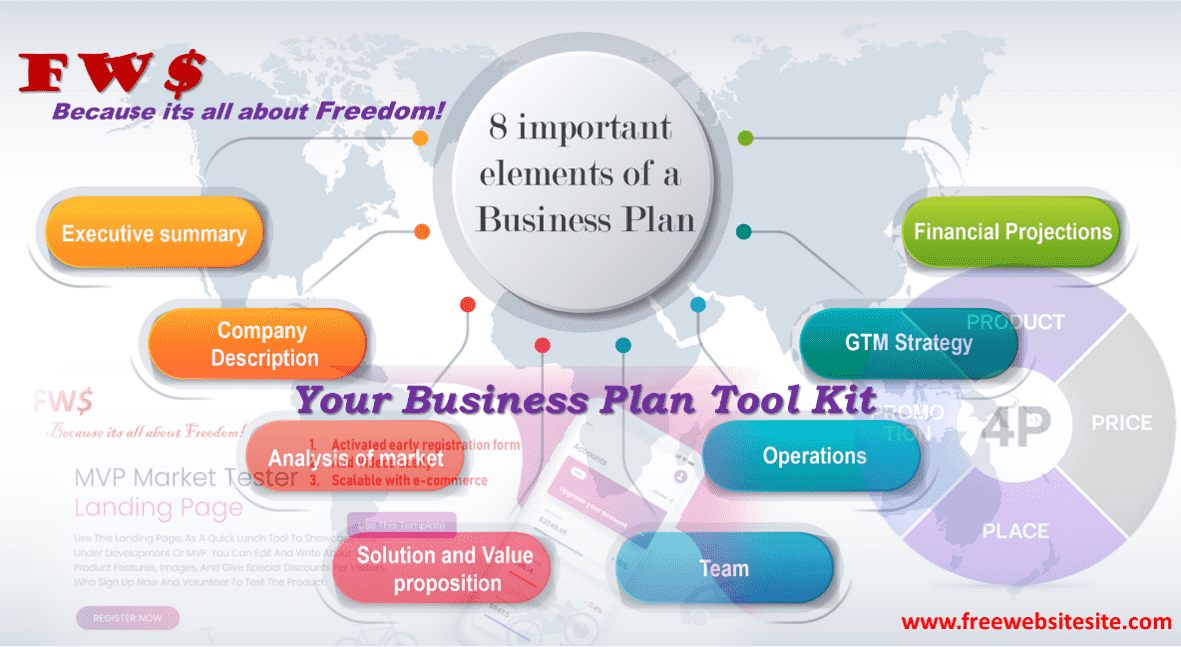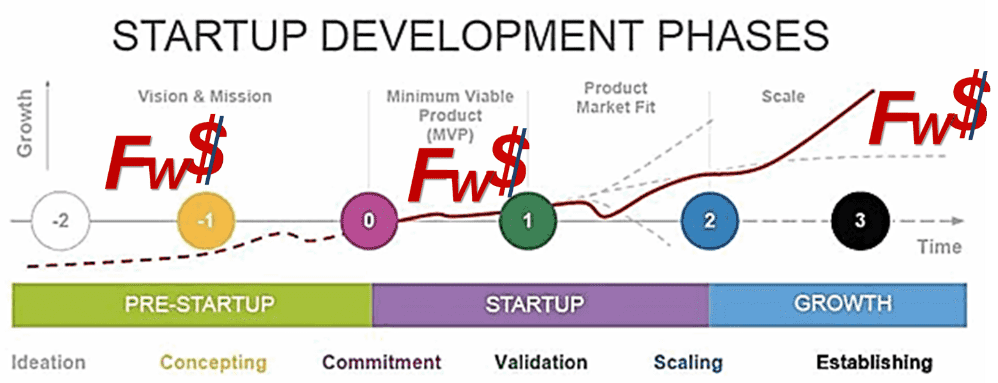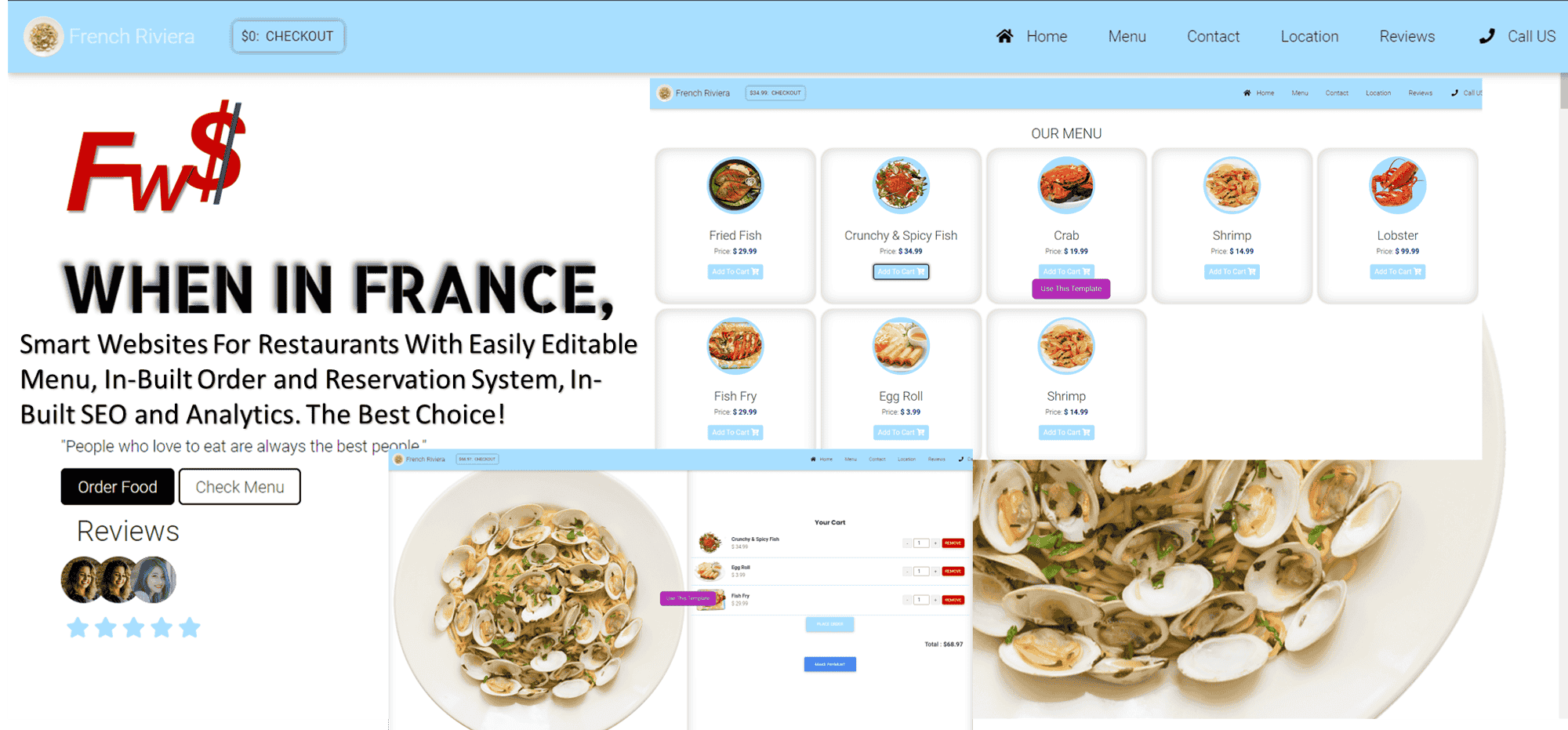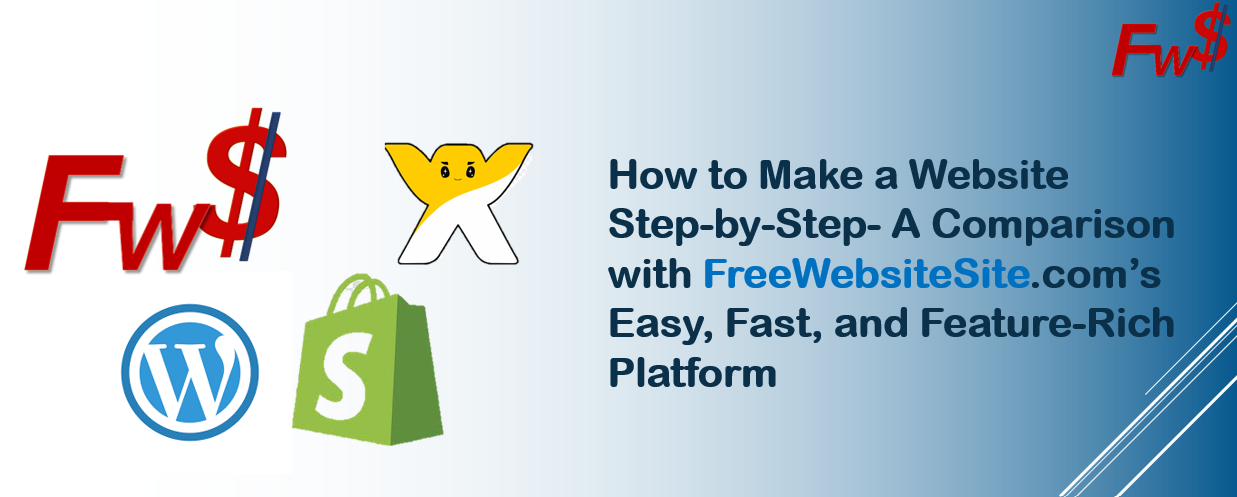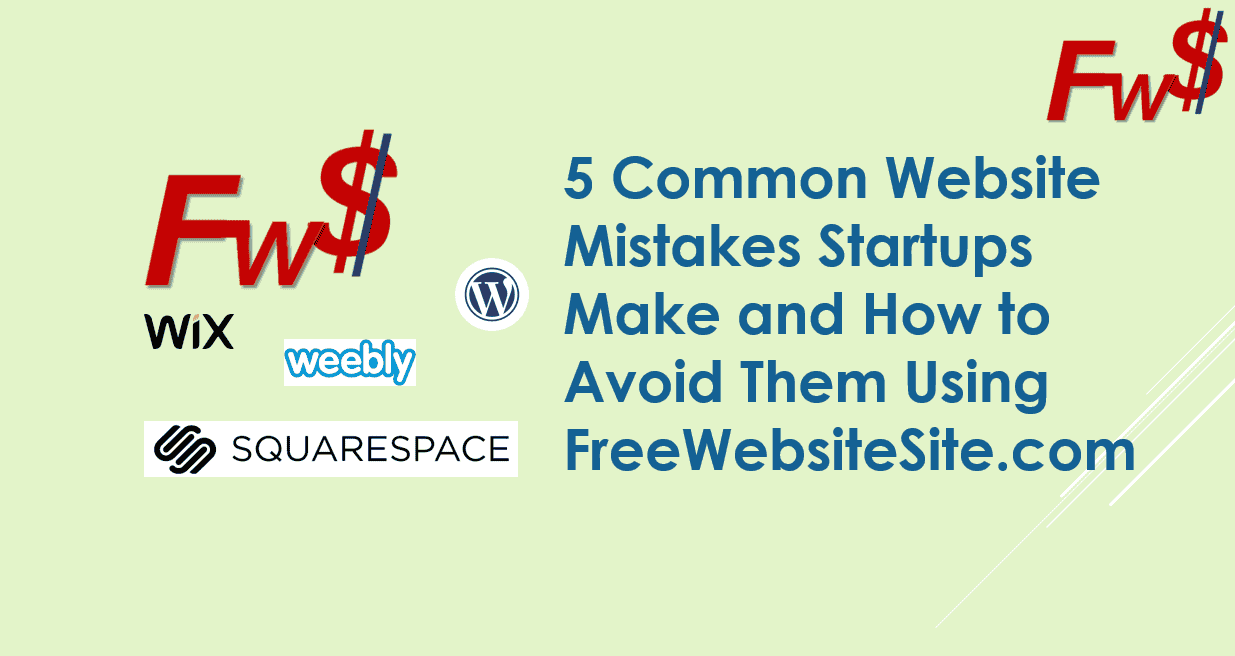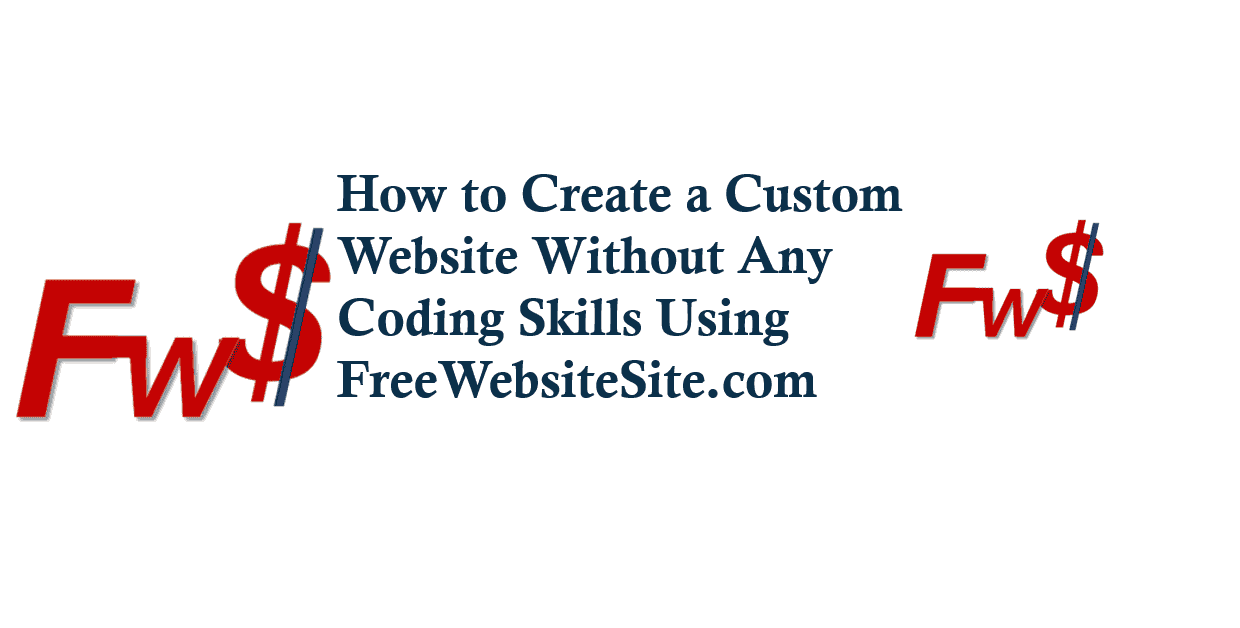Top 5 Website Builders for Beginners- Features & Pricing Comparison
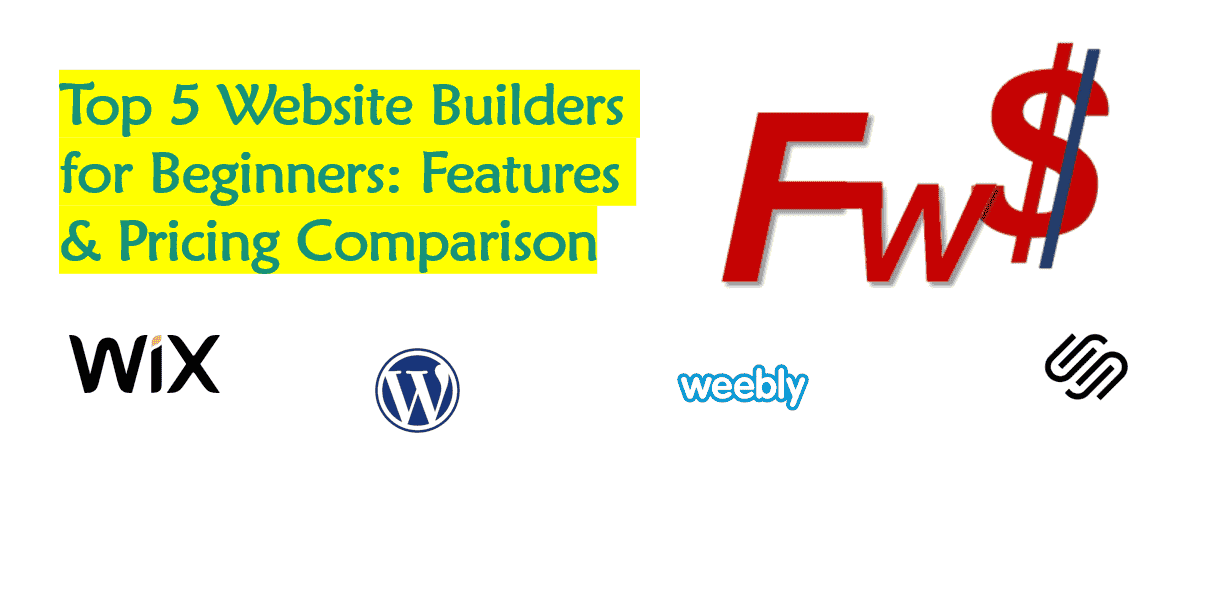
Top 5 Website Builders for Beginners: Features & Pricing Comparison
Creating a website used to be a complicated process requiring coding skills or hiring a professional. But today, website builders have revolutionized the web design process, allowing beginners to create their own websites quickly and easily. Whether you are starting a blog, portfolio, business website, or online store, the right website builder can make all the difference. This article compares the top 5 website builders for beginners, highlighting their features, ease of use, and pricing.
Table of Contents
- Introduction: The Importance of Choosing the Right Website Builder
- 1. Wix: The All-Rounder Website Builder
- 2. Squarespace: Beautiful Design for Creatives
- 3. WordPress.com: Ideal for Bloggers & Content Creators
- 4. Weebly: Simple and Straightforward
- 5. FreeWebsiteSite.com: Start with a Free Website
- Conclusion: Which Website Builder Is Best for Beginners?
1. Wix: The All-Rounder Website Builder
Features: Wix is one of the most popular website builders, known for its user-friendly drag-and-drop interface. Whether you're a complete beginner or have some experience, Wix offers flexibility that suits various types of websites, from personal blogs to business sites and online stores. Its powerful editor allows you to customize elements freely, and it includes a massive library of templates, both free and paid.
One standout feature is Wix ADI (Artificial Design Intelligence), which helps users create a professional-looking website in just a few clicks. With Wix, you can also add advanced features like booking systems, online payment options, and SEO tools.
Pricing:
- Free Plan: Offers basic features with Wix branding and ads.
- Premium Plans: Start at $16 per month (Combo) and go up to $39 per month (VIP).
- Business Plans: Start at $23 per month for basic e-commerce features.
Pros:
- Drag-and-drop editor.
- Highly customizable templates.
- Free plan available.
- ADI feature for beginners.
Cons:
- Limited storage on lower-tier plans.
- No free e-commerce features.
2. Squarespace: Beautiful Design for Creatives
Features: Squarespace is well-known for its stunning, professionally designed templates. If you are a creative individual—whether a photographer, artist, or designer—Squarespace could be an excellent choice. The platform offers a variety of visually appealing themes optimized for mobile devices. Squarespace’s intuitive drag-and-drop editor makes it easy to build a beautiful website, even with no design experience.
It also provides robust blogging and portfolio features, an integrated e-commerce platform, and built-in SEO tools. While customization options are more limited compared to Wix, Squarespace compensates with a streamlined, elegant design process.
Pricing:
- Personal Plan: $16 per month.
- Business Plan: $23 per month (includes e-commerce features).
- Basic Commerce Plan: $27 per month.
- Advanced Commerce Plan: $49 per month.
Pros:
- Award-winning templates.
- Integrated e-commerce tools.
- Mobile-responsive designs.
- Excellent customer support.
Cons:
- Less flexibility than other builders.
- Higher pricing plans compared to competitors.
3. WordPress.com: Ideal for Bloggers & Content Creators
Features: WordPress.com is the hosted version of WordPress, one of the most popular content management systems (CMS) globally. It’s a great choice for beginners who want to start a blog or content-heavy website. The platform is easy to use with a variety of themes and a user-friendly block editor.
Though it has a steeper learning curve than some other website builders, WordPress.com provides greater control over content creation and scalability. It offers solid blogging features, social media integration, and SEO tools. Users can upgrade to various plans to unlock more features, including custom domains and e-commerce capabilities.
Pricing:
- Free Plan: Includes basic features with WordPress branding.
- Personal Plan: $4 per month.
- Premium Plan: $8 per month.
- Business Plan: $25 per month (includes advanced customization and e-commerce).
- E-Commerce Plan: $45 per month.
Pros:
- Great for blogging and content management.
- Large selection of themes.
- Excellent scalability for growing websites.
- Solid SEO and social media integration.
Cons:
- Limited design flexibility on lower plans.
- Ads are displayed on the free plan.
- Limited customization compared to WordPress.org.
4. Weebly: Simple and Straightforward
Features: Weebly is another beginner-friendly website builder known for its straightforward interface and ease of use. The platform offers drag-and-drop functionality, which allows you to quickly build a website without technical skills. Weebly’s feature set includes customizable templates, SEO tools, mobile optimization, and integrated e-commerce tools.
One of its standout features is the ability to manage online stores effortlessly, making it an excellent choice for small businesses or those looking to sell products online. Additionally, Weebly is now owned by Square, which means it integrates well with Square's payment systems for e-commerce sites.
Pricing:
- Free Plan: Basic features with Weebly branding.
- Personal Plan: $6 per month.
- Professional Plan: $12 per month.
- Performance Plan: $26 per month (best for e-commerce).
Pros:
- User-friendly interface.
- Affordable pricing plans.
- Great e-commerce features.
- Easy-to-use SEO tools.
Cons:
- Limited design flexibility.
- Fewer templates than other builders.
5. FreeWebsiteSite.com: Start with a Free Website
Features: For those on a budget, FreeWebsiteSite.com offers an option to create a website entirely for free. While it may not have the same advanced features as other builders, it’s an excellent option for beginners who want to test the waters before committing to a paid plan. FreeWebsiteSite.com offers a simple drag-and-drop editor, basic templates, and essential features like contact forms, blogs, and SEO options.
However, the free version includes ads and limited customization options. Once you’re ready to upgrade, FreeWebsiteSite.com provides affordable pricing for additional features and the removal of ads.
Pricing:
- Free Plan: Includes basic features with ads.
- Premium Plans: Start at $3.99 per month.
Pros:
- Completely free to start.
- Easy-to-use editor.
- Basic features for beginners.
- Affordable premium plans.
Cons:
- Ads displayed on free websites.
- Limited design customization.
- Fewer advanced features than other builders.
Conclusion: Which Website Builder Is Best for Beginners?
When choosing a website builder, the best option depends on your needs, budget, and long-term goals.
- Wix is perfect if you need flexibility and a variety of templates.
- Squarespace excels in design for creatives and visually stunning websites.
- WordPress.com is ideal for bloggers and content creators.
- Weebly is a great all-around choice for beginners, particularly those interested in e-commerce.
- FreeWebsiteSite.com is the perfect option for those who want to start for free with basic features.
Each platform offers something unique, so consider your website’s goals before making a decision. With the right website builder, you can create a stunning, professional website without any coding knowledge.
Related Templates
Here are some relevant stats and facts related to website builders for beginners, which can be incorporated into the article to make it more informative and SEO-optimized:
1. Website Builder Market Growth
- The global website builder market size was valued at $9.94 billion in 2020 and is expected to expand at a growth rate of 15.6% from 2021 to 2028 (Source: Grand View Research).
- As more small businesses and individuals turn to online presence, the demand for website builders has increased significantly, especially among beginners with no coding knowledge.
2. Wix Popularity
- Wix has more than 200 million users worldwide, making it one of the most popular website builders globally (Source: Wix).
- Wix’s market share among website builders is around 45.2%, showing its dominance in the industry (Source: Statista).
3. Squarespace Success
- Squarespace hosts over 2.8 million websites, including high-profile brands and creative portfolios (Source: Squarespace).
- 55% of Squarespace users report using it for business or professional purposes, including e-commerce, blogging, and portfolio creation (Source: Squarespace).
4. WordPress Market Share
- WordPress powers over 40% of all websites on the internet, making it the most popular website platform worldwide (Source: W3Techs).
- WordPress.com (the hosted version) has over 60 million active users (Source: WordPress.com).
5. Weebly E-commerce Growth
- Weebly powers over 50 million websites, with a strong focus on e-commerce, making it an attractive choice for beginners looking to start online stores (Source: Weebly).
- Weebly’s e-commerce tools are used by over 500,000 active online stores (Source: Weebly).
6. FreeWebsiteSite.com Usage
- FreeWebsiteSite.com offers an accessible entry point with its free plan, making it a valuable option for users testing website creation without financial commitment. Although data on the specific number of users is limited, its free plan attracts a large number of beginners.
7. Mobile-Responsive Design
- Over 50% of global web traffic comes from mobile devices, emphasizing the need for mobile-responsive website builders like Wix, Squarespace, and Weebly (Source: Statista).
- Mobile responsiveness is now a ranking factor for search engines, making it essential for all website builders to offer mobile-optimized templates.
8. E-commerce Growth
- E-commerce sales are expected to reach $6.3 trillion by 2024, with a significant portion of this coming from small businesses and individual entrepreneurs using website builders for their online stores (Source: Statista).
- Platforms like Wix, Weebly, and Squarespace offer integrated e-commerce features, catering to the growing number of entrepreneurs looking to sell online.
9. SEO Importance
- 93% of online experiences begin with a search engine, making SEO optimization crucial for website success (Source: Search Engine Journal).
- Many website builders, including Wix, Squarespace, and WordPress, offer built-in SEO tools to help beginners rank higher in search results.
